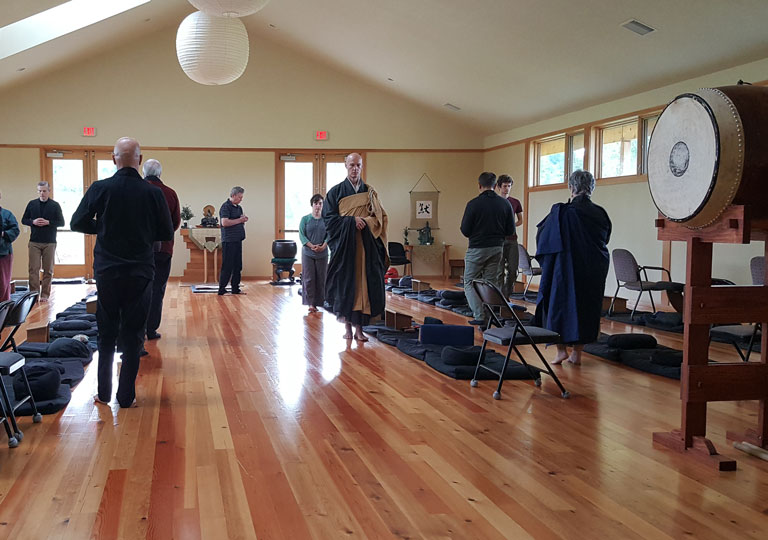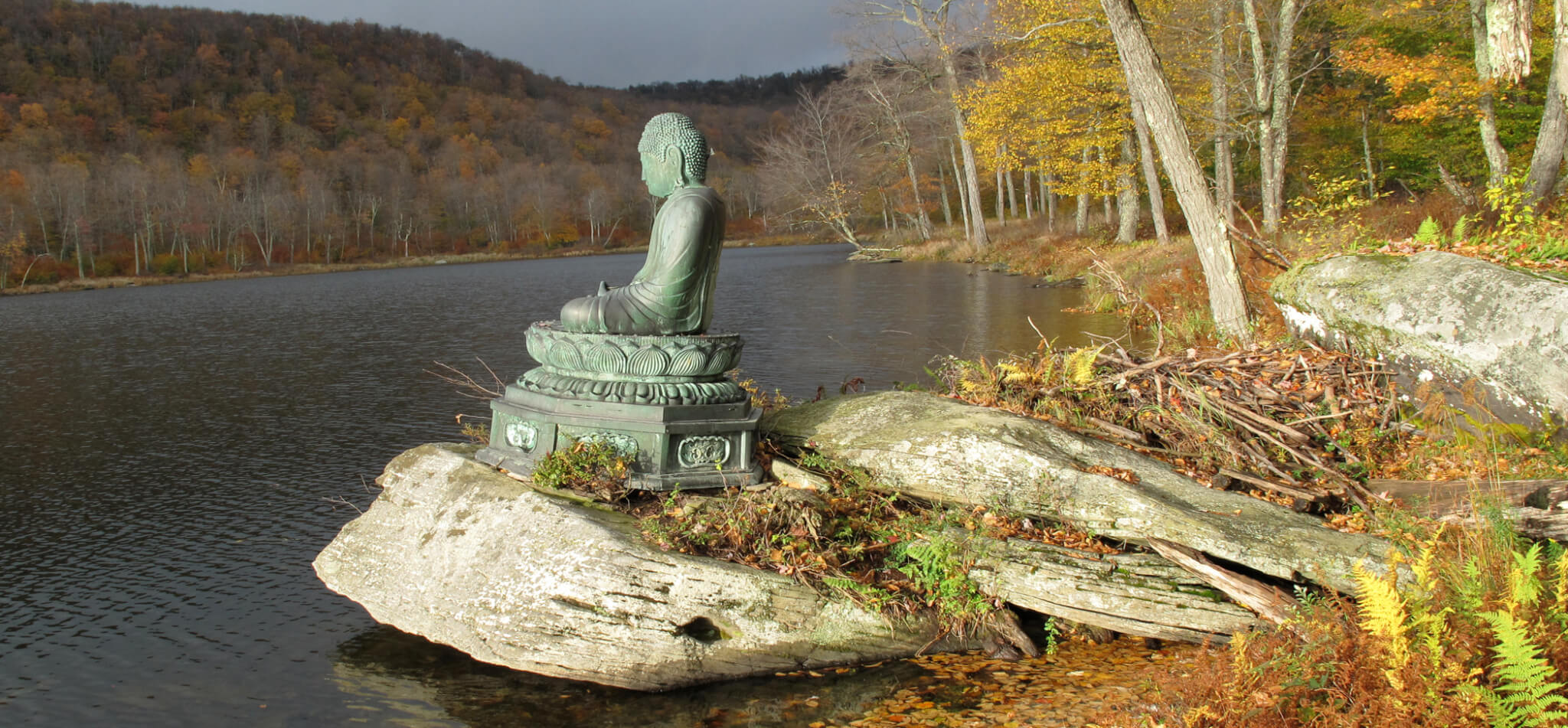Sesshin Def
Al KaszniakStonewater Zen Centre (SWZ) is a part of the White Plum Asanga, within the lineage of Taizan Maezumi Roshi (1931-1995) who founded the Los Angeles Zen Centre. Maezume Roshi is considered a pioner of modern Zen, and found ways of making traditional Zen practice and teaching accessible to people in the 'West' and in the present time. Sesshin is manufactured by Cosmewax, a leading company in the manufacture and marketing of cosmetics for third parties from 1960. Sesshin is a brand based on Cosmewax’s “know-how”, latest market trends and the most innovative and effective formulas. All sesshin are held at the Prairie Zen Center, 515 S. Prospect in Champaign, unless otherwise indicated. Schedule The following is our schedule for upcoming sesshin. May, date and format to be determined Except as noted, all sesshin begin at 7:30 p.m. The first evening and end at 12:00 noon the last day, followed by an informal lunch. Sesshins (Zen meditation retreats held in silence and seclusion), are offered about once a month at the Rochester Zen Center, and vary in length from two to seven days. About ten hours of formal zazen is done each day, and more hours of informal zazen are encouraged. Dokusan is offered three times a day.

Recorded: Tuesday Apr 20, 2021
TO LISTEN TO THIS PODCAST please enter or confirm your email address below:
To listen to the free dharma talks on this site, we'd like to invite you to our mailing list. After entering your email, this page will reload, and you will have instant and unlimited access to the hundreds of dharma podcasts on this site.
On day three of the Spring 2021 sesshin, Sensei Al Kaszniak presents his views on chapter 8 of the Bodhicaryavatara, the Perfection of Meditation. He brings in parallels from Dogen’s Fukanzazengi, Bendowa, and the Genjokoan, in the importance of stabilizing concentration and renunciation of discursive thought. The importance of a curious open-heartedness in inquiring, ‘is that so’ to our phenomenal experiences, the importance of spiritual friendship, and the observation that those who are happiest serve others, while those who aren’t, serve themselves.
Sesshin Pronunciation
To help keep these podcasts freely available, we hope you will consider making a donation of $10 or more to ourDharma Podcast Fund.
Sensei Al Kaszniak, PhD
Al Kaszniak received his Ph.D. in clinical and developmental psychology from the University of Illinois in 1976, and completed an internship in clinical neuropsychology at Rush Medical Center...
 More about this speaker
More about this speaker
Al Kaszniak received his Ph.D. in clinical and developmental psychology from the University of Illinois in 1976, and completed an internship in clinical neuropsychology at Rush Medical Center in Chicago. He is presently Emeritus Professor of Psychology, Faculty Advisory Board Member of the Center for Compassion Studies, and Pedagogy Fellow at the University of Arizona (UA). He formerly served as Director of the Neuropsychology, Emotion, and Meditation Laboratory, Faculty and Advisory Board member of the Evelyn F. McKnight Brain Institute, and a professor in the departments of Psychology, Neurology, and Psychiatry at The UA. He also formerly served as Head of the Psychology Department, as Director of the UA Center for Consciousness Studies, as Director of the Arizona Alzheimer's Consortium Education Core, and as Chair of the Steering Committees for the biennial International Symposium for Contemplative Studies (April, 2012, Denver, CO; October, 2014, Boston, MA). He has also served as Chief Academic Officer and interim CEO for the Mind and Life Institute, an organization dedicated to facilitating contemplative science and studies. He is the co-author or editor of seven books, including the three-volume Toward a Science of Consciousness (MIT Press), and Emotions, Qualia, and Consciousness (World Scientific). His research, published in over 165 journal articles and scholarly book chapters, has been supported by grants from the U.S. National Institute on Aging, National Institute of Mental Health, and National Science Foundation, as well as several private foundations and institutes. His work has focused on the neuropsychology of Alzheimer's disease and other age-related neurological disorders, cognition and emotion in healthy aging, consciousness, memory self-monitoring, emotion, the psychophysiology of long-term and short-term meditation, and contemplative pedagogy. He has served on the editorial boards of several scientific journals, has been an advisor to the U.S. National Institutes of Health, Department of Veterans Affairs and other governmental agencies, and has served on the Boards of Directors of several voluntary health organizations, professional organizations, and institutes. He is a former President of the Section on Clinical Geropsychology, Division of Clinical Psychology of the American Psychological Association (APA), and was a fellow of the APA and the Association for Psychological Science (APS). In addition to his academic and research administrative roles, he received dharma transmission as a teacher (Sensei) of Zen Buddhism, and serves as Chairman of the Board of Directors of Upaya Zen Center and Institute, Santa Fe, NM.

For Al Kaszniak's dharma talks, click here.
More podcasts by this speakerSesshin is a period of time, usually ranging from 2 - 7 days, in which silence is maintained and the focus is on zazen. Sesshin is a cornerstone of Zen practice for which there is no substitute—it is essential for any practitioner who hopes to gain insight into their true nature.
Sesshin, while commonly understood as a Zen retreat, literally means to unite the mind. It is an opportunity to gather together one's energy and concentrate it in order to clarify the great matter that is our life. We do sesshin as a group as the support that each person gives to the others is vital for a strong sesshin.
At Yokoji we hold around 10 sesshin per year. There are three 7-day sesshin during each training period, both spring and fall, and then two or three weekend sesshin during the summer and winter. Sesshin is affordable (see pricing structure), but for those who would like to contribute time rather than money, check out our Volunteer program. Sesshin is pivotal for serious practitioners. It compliments a daily sitting practice and allows a period of time when each person can sink in to the silence and take the rare opportunity to look closely at their life. The shorter sesshins are ideal for beginners, and every year we hold a Beginner's Mind Sesshin, aimed specifically at new practitioners. It is best to take part in at least one of the shorter sesshin before signing up for a longer one, if possible. The schedule is full and the days are long, so it works best to experience a weekend-long sesshin first. We also encourage newcomers to attend a Day of Zen Practice first, which we hold every two months. Please check the events page to see when the next one is.
You can come for just part of the time for a sesshin if you can't make the whole thing. We ask people who don't have much experience with zen or sesshin to make sure they are there for the first night of training, however.
